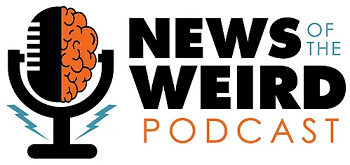
Are you perched on the edge of business expansion or perhaps an entrepreneurial rookie with a revolutionary idea in the wings? If you are, then this piece brings exhilarating news to propel your aspirations and catalyse your venture’s prodigious growth.
We shall delve into the sphere of commercial business loans, unmasking their potent roles in spearheading innovation, expansion, and fiscal prosperity. Buckle up as this write-up traverses the vast prospects that arise when enterprises tap into these transformative financial solutions.
Deciphering Commercial Business Loans
In essence, a commercial loan is an advance granted to a business instead of an individual. The loan’s collateral frequently takes the form of the business’s apparatus, accounts receivable, or real estate. These loans are often employed for a myriad of objectives, from financing new equipment acquisitions to escalating business operations.
Commercial loan conditions are typically less prolonged than those of residential mortgages, while interest rates are generally higher. Nonetheless, commercial loans often have lesser closing expenses than residential mortgages.
The commercial loan universe is expansive, and the ideal choice for your business hinges on your unique needs and targets. A proficient lender, versed in your business nuances, can guide you towards the best possible loan terms.
Classification of Business Loans
The business loan domain can appear intricate and bewildering, teeming with loan types, each with their unique terms, conditions, and repayment schemes. Discerning which loan suits your business can be challenging. Below is a simplified dissection of the most typical business loans:
-
EFG Loans:
These are government-backed loans offering extended repayment durations and reduced interest rates. They are fitting for enterprises with robust credit histories.
-
Commercial Real Estate Loans:
These loans fund the purchase or erection of commercial property. Although they usually have more extended repayment periods than other loans, the interest rates can be higher.
-
Equipment Financing:
This loan type aids businesses in financing new equipment purchases. The repayment terms fluctuate based on the equipment financed, typically spanning 2-7 years.
-
Invoice Financing:
This loan variant allows businesses to borrow against unpaid invoices, a suitable option for enterprises needing short-term cash flow.
-
Lines of Credit:
This loan type provides businesses with cash access when necessary. They generally have lower interest rates than other loans but require monthly repayments.
The Pros and Cons of Business Loans
Commercial business loans can be crucial for small business proprietors to preserve liquidity, tackle unforeseen expenses, or seize growth opportunities. Nonetheless, like all loans, they carry their pros and cons that need deliberation before obtaining a commercial business loan.
Pros:
Improves Cash Flow:
Should your business require operational capital, a commercial loan can avail the necessary funds to keep things running smoothly. Particularly beneficial for seasonal or cyclical businesses, it can balance your cash flow throughout the year.
Enhances Credit History:
Making punctual payments on a commercial loan can bolster your business’s credit history, easing future financing and possibly securing improved terms and rates on subsequent loans.
Versatile Usage:
A commercial loan gives you the flexibility to use the funds for almost any purpose, be it equipment procurement, inventory expansion, or real estate development.
Cons:
Possibility of High Interest Rates:
Interest rates on commercial loans can oscillate broadly, depending on the lender and loan type. In certain cases, interest rates may supersede those obtainable from other financing forms such as credit lines or credit cards. It’s crucial to compare offers from various lenders to secure the best available rate.
Loss of Collateral Risk:
Should your business fail to repay the loan, the lender might confiscate any collateral offered. This could result in losing vital business assets like buildings, equipment, or inventory.
Potential Extra Charges:
Lenders often impose additional fees for their commercial loans, such as application fees, origination fees, early repayment penalties, among others. Ensure you inquire about all charges before signing the loan agreement, comprehending all potential costs tied to the loan.
Eligibility Criteria for a Business Loan
Assuming the business proprietor seeks a conventional bank loan, banks generally scrutinise five pivotal factors when deliberating on loan approval:
-
The Proprietor’s Character:
This incorporates aspects such as the owner’s credit history, business duration, and community reputation.
-
The Business’s Repayment Capacity:
This encompasses an examination of the business’s past financial records and future income and expenditure forecasts.
-
The Collateral Offered:
This might include real estate, equipment, inventory, or other assets utilised to repay the loan, if necessary.
-
The Industry and Economic Conditions:
This considers factors like market trends, competition, and overall economic circumstances.
-
The Loan’s Terms:
This includes elements like the borrowed amount, interest rate, repayment schedule, and so forth.
Typically, businesses with robust financials and a reliable track record are more likely to qualify for a bank loan. Collateral is also often required to secure a loan. If unsure about your business’s loan eligibility, it’s always best to consult directly with a lending officer to explore your alternatives.
Advice on Structuring Your Business Loan
Assuming you aim to secure a loan for your business’s growth, consider a few pointers when formulating your loan. First and foremost, the loan amount should align with your business’s needs. Over-leveraging could land your business in financial hot water.
Next, ponder the loan’s terms. What is the repayment duration? What is the interest rate? Ensure that the monthly payments are comfortably within your reach and that the loan’s conditions are favourable.
Consider what assets you’re prepared to offer as collateral for the loan. As this typically involves a valuable asset that could be sold if you fail to repay the loan, think carefully about what you’re comfortable risking. Having contemplated these factors, you’ll be well-equipped to structure a business loan that addresses your needs and facilitates your business’s growth.
Final Thoughts
Commercial business loans can prove to be valuable tools for business growth, expansion, and new customer acquisition. The secret lies in understanding your options and being alert to potential pitfalls. It’s vital for executives and business owners to thoroughly research the diverse loan types available before deciding on which to utilise.
Armed with this knowledge, they’ll be well-poised to make informed decisions tailored to their specific needs, ensuring that their companies advance towards success rather than stagnating due to insufficient funding.


